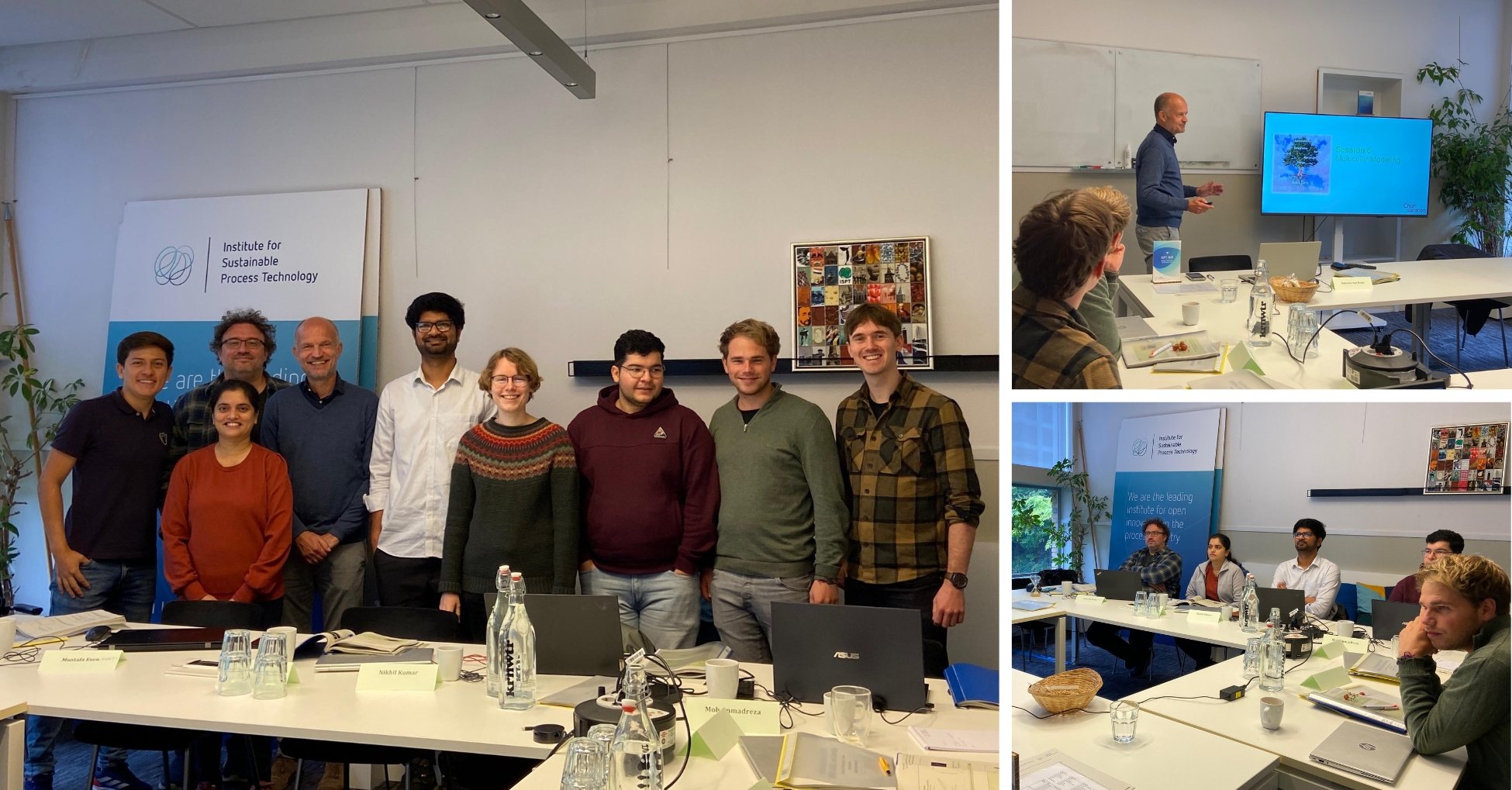Many seasoned engineers were trained in an era before these new challenges emerged, and recent graduates often lack the specialized skills needed to solve today’s complex problems. To bridge this gap, we must go beyond traditional education.
Advanced training is critical to equipping engineers—whether working in industry or pursuing advanced degrees such as EngD or PhD—with the tools to lead the energy and materials transition.
That’s why the Institute for Sustainable Process Technology (ISPT) and the Netherlands Process Technology Association (NPT) have developed a series of specialized courses for post-master chemical engineers.
Specialized courses for post-master chemical engineers
We are on the brink of revolutionary changes. In the next 10 to 15 years, our way of living, working, and producing energy and food will undergo a radical transformation. Technological innovation will drive this transition, and chemical engineers with advanced expertise will be essential to leading the charge.
Closing the knowledge gap
While bachelor’s and master’s programs lay a strong foundation in chemical engineering, they often lack the time to cover all key technologies in detail. At ISPT and NPT, we value the strength of European chemical engineering education, but we know that producing specialists requires focused, high-level training—much like athletes perfecting their craft for elite performance.
Over the years, many companies have outsourced deep technical expertise, relying on external vendors for equipment details. But as industries undergo massive transitions, they need engineers who deeply understand their own processes and systems.
In addition, there’s a need for critical thinkers – engineers who can discern which promising technologies are scalable in practice. Too often, millions are invested in concepts that never achieve commercial success. Engineers with the right training can help avoid these missteps and bring impactful innovations to scale.
Upcoming courses
5-7 October 2026 – Applied Thermodynamics for Chemical Engineering
Past courses
Biorefinery Course 2024
The first course in this series, in collaboration with Eindhoven University of Technology (TU/e), focused on Biorefining. This course was designed for PhD students, postdocs, and industrial engineers, providing the deep technical knowledge and practical skills needed to pioneer the biorefinery revolution.
Understanding complex systems like fluidized beds, gas-liquid contactors, and membrane installations, as well as mastering challenges related to feed composition and product requirements, is key for engineers to drive innovation in biorefinery. This in-depth training comprehends and improves knowledge on chemical installations that convert fossil feedstocks into products and transition those processes to circular and bio-based alternatives.
Advanced Distillation Technologies Course January 2025
Traditional distillation, while widely used, is highly energy-intensive. This course focused on improving eco-efficiency through advanced techniques such as reactive distillation, dividing-wall columns, and heat pump-assisted distillations. Participants engaged in interactive discussions and hands-on experiences (including process simulations), applying these methods to an industrial case study. The knowledge gained equips professionals with effective tools to tackle a wide range of industrial separation challenges.
This course was hosted by Tony Kiss, TU Delft
Hydrometallurgical Recycling of Critical Raw Materials Course September 2025
With the rising demand for high-purity metals used in batteries, electronics, and renewable energy technologies, recycling is key to reducing reliance on primary mining and building a circular, sustainable future.
Presented by Derik van der Westhuizen (NWU, Centre for Sustainable Mining, RSA) and Dolf Bruinsma (Bruinsma Solutions, RSA), the course explored essential hydrometallurgical unit operations, including leaching, solvent extraction, ion exchange, precipitation, and electrowinning – to recover valuable metals from complex urban waste streams.

Applied Thermodynamics for Sustainable Chemical Engineering Course October 2025
A sound knowledge and intuitive understanding of applied thermodynamics is essential for every chemical engineer – and even more so in today’s era of energy and materials transition. Thermodynamics provides the foundation and tools for proper debottlenecking, optimization, design, and the development of sustainable chemical products and processes.
Throughout the course, the complexity of thermodynamics was unraveled, and its valuable applicability to real chemical engineering challenges clearly demonstrated. Topics covered included physical properties & phase behavior, energy efficiency & exergy, as well as hands-on exercises in data estimation and regression using ChemSep and COCO — two dedicated simulation software tools.
The course was organized by NPT, ISPT, and Chemspiration, and delivered by Antoon ten Kate, industrial thermodynamics expert.
Stay updated on courses to come, please join our LinkedIn-community of subscribe to our newsletter.
